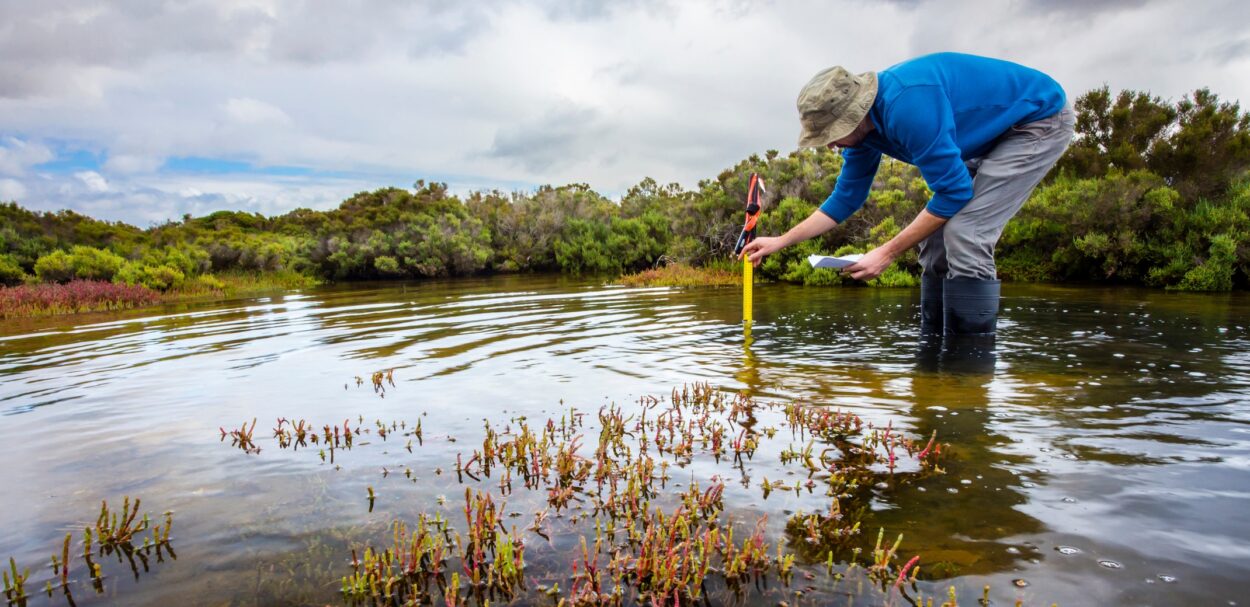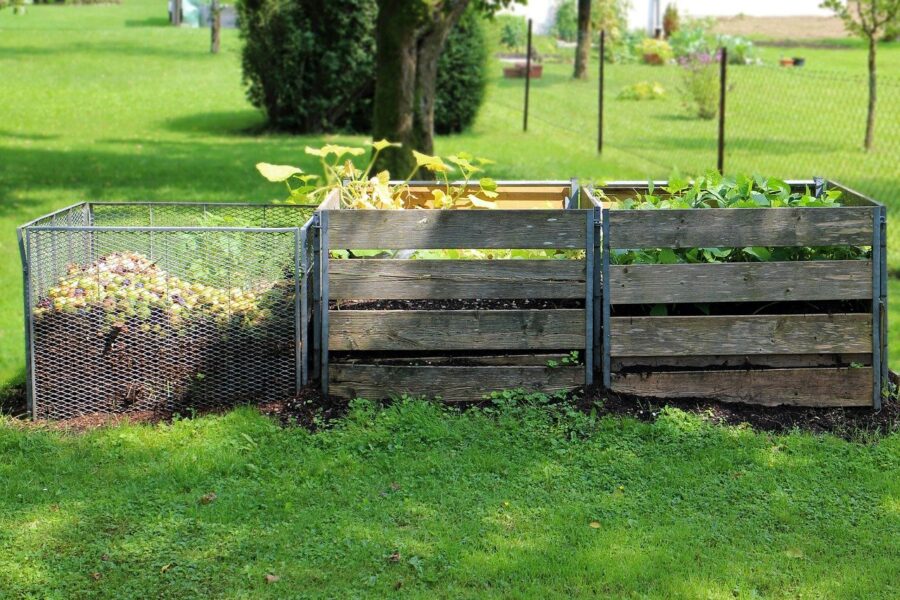The 21st century has been full of stark warnings about the reality and urgency of the climate emergency. While these can be scary and worrying, the moment is also full of opportunities for leaders to emerge who understand science, excel at communication, and can bring together experts from multiple fields to reach a common goal. These are exactly the sort of leaders educated by the Master of Science in Resource Management and Administration at Antioch New England. Antioch has offered this degree since 1979, but this year, with a growing demand for specialization, the program has launched three new curricular pathways that prepare students to compete and flourish as environmental professionals.
“We need interdisciplinary moderators between the experts and policy-makers,” says Michael Simpson, the program’s director, as he explains why the program’s new pathways are important. The leaders who come out of the program are able to mediate between hard scientific data, political theories, economic analysis, and legal questions. This allows them, he explains, to “translate and provide a systematic view of the challenges we face.”
The three new pathways each approach this from a different lens, though each shares an emphasis on real-world applications. The International Development and Climate Change pathway emphasizes leadership skills and scientific expertise focused around projects at the local level. Another option, the Sustainable Development and Climate Change helps students focus on the larger forces that impact different parts of the globe as well as best practices to operate in those places. And the third option, the Leadership and Management of Sustainable Systems pathway, encourages students to think about how to help build businesses and organizations that thrive while making a positive impact on the world. All of these pathways are designed both for students who have been working in the resource management field for years as well as those who are seeking a career change moving into this growing field.
A Long History in Resource Management
These curricular changes build off Antioch’s long history of offering a degree in Resource Management and Administration (RMA). This program is actually older than Antioch’s Environmental Studies department itself. (The department was founded in the ‘90s, while the RMA launched in 1979.) But the core mission of the degree has remained the same, explains Simpson, who before becoming the RMA program’s director was himself a student in the program. He explains that in current environmental messaging, “How we communicate necessary change to the public is insufficient.” The degree equips students to help change that messaging failure.
At the same time students learn the specialized terminology and underlying science of the different fields that meet in this subject, they are also encouraged to carve out their own paths and projects centered around the challenges that they and their communities are facing. More than half of students in a typical cohort are full-time professionals while earning their degree. Additionally, aside from field intensives, more and more students are choosing to earn their degree remotely.
In considering how they could improve and add to the RMA, Simpson and his colleagues tried to create pathways that would suit a wide variety of students while equipping them for specific work. Graduates find employment at all levels of resource management, from becoming state and federal regulators, public sector planners, finding positions in small and large environmental NGOs, and working for environmental consulting firms, universities and businesses. More than a few have gone to develop their own businesses, using their capstone learning experience to develop marketing and business plans.
The Sustainable Development and Climate Change Pathway
“We want to train our students for what a landscape will look like ten to twenty years from now,” says Simpson, describing the emphasis of the Sustainable Development and Climate Change pathway. This pathway engages students face-to-face on the New England campus to start thinking in systems. While many students have backgrounds in ecology, biology, or climate, just as many come from backgrounds outside of science and are looking to expand their professional skill set. The program works to develop oral and written communication skills to equip leaders to share ideas and solutions with a wide scope of people.
By engaging with the four pillars of Science, Management & Communication, Policy, and Practice, the program teaches students to think across subject lines and instead consider the entire system they are working in. A typical semester might include a field assessment of a watershed, group discussions of complex necessary policy changes, a class on managing a budget, and independent work on a local sustainability project of choice. Says Simpson, “We want [students] engaged in their local communities: the internal Antioch community, the greater city of Keene community, and their international community of change-makers.”
The International Sustainable Development and Climate Change Pathway
Where the Sustainable Development and Climate Change pathway encourages students to take action in their own communities, the pathway in International Sustainable Development and Climate Change takes those same principles and applies them at a global scale. The goal with an international approach is to identify peoples and communities that have been neglected and act for them. First, deal with the vulnerable: structures and populations at the most risk of harm from the impacts of climate change or declining environmental quality.
“Equity is different from equality,” Michael emphasizes. “Equity is taking those who are disadvantaged and not treating them equally but instead providing them what they need to be equal. First deal with the deficit [in the community] and start from there.”
In addition to their coursework and capstone projects, students in this pathway take advantage of the international connections of Antioch’s Center for Climate Preparedness & Community Resilience to embark on immersive sustainability projects abroad. These intensive trips have in the past included “Water Resource Management and Sustainable Practice” in Cusco, Peru; “Energy Decentralization: Microgrid Systems for Rural Development” in Kathmandu, Nepal; and “Energy Transition: Renewable Energy Innovation & Sustainability” in Reykjavik, Iceland.
The first round of international trips for this pathway was supposed to begin in 2020 but had to be adapted for the new reality of the COVID-19 Pandemic. Students instead attended two-week intensive courses for each destination through the respective schools: Universidad San Ignacio de Loyola in Peru, Kathmandu University’s School of Development Studies in Nepal, and Reykjavik University’s Iceland School of Energy in Iceland. The courses were taught via Zoom, and the professors were based in-country, teaching from their respective schools.
“I really enjoyed all of the online experiences,” says Ashley Forwood, who was part of the 2021 cohort of the International Sustainable Development and Climate Change pathway. She continues, “I loved attending… through the lens of a graduate student and found it challenging and rewarding. If I had to choose a favorite, it would have to be the Peru course because our professor was extremely knowledgeable and we covered the history and culture of Peru, paying special attention to water resources. I really do believe this was the next best thing to going to the countries in person. It was still a great experience even with [the pandemic’s] complications.”
Another student in the 2022 cohort Emmanuel Uwizeye, agrees. He says, “The presentations we had in class were well-elaborated with sufficient details, and I could imagine exactly what was happening on the ground. It is my hope that I will be able to visit Iceland in the near future… to learn more from Iceland’s experience in renewable energy.”
Each of these trips is open to Antioch students both within this pathway and from other pathways—and even students in other programs and from other campuses. As soon as it is safe, international travel for these courses will resume.
The Leadership and Management of Sustainable Systems Pathway
For professionals in the sustainability and policy worlds, the pathway in Leadership and Management of Sustainable Systems may be the right choice. This pathway relies on students’ previous professional or personal experiences to inform how they learn to be better leaders. The focus is on building professional skills like dispute resolution, budget management, facilitation, and consulting. Many of the students in this pathway are hoping to apply these new skills for career advancement or change.
Suzannah MacDonald, a recent graduate of the program, found that her new degree opened up new opportunities for her in the field she loved. Having an employment history as an hourly agricultural laborer, she found that her new skills from RMA allowed her to speak to ideas about adaptive leadership, improved resource management, and Diversity, Equity, and Inclusion initiatives. She now works as a greenhouse supervisor at a small, local greens company, managing a team growing hydroponic basil and lettuce crops.
“RMA students play a pivotal role in the adaptiveness of many industries, not just limited to field conservation and restoration work,” says MacDonald. “Having the foresight to discuss transparent representation, systems-thinking approaches, and community action enables future RMA graduates to apply this program just as it is presented: as an interdisciplinary tool to shift existing frameworks into resilient and adaptive frameworks.”
The Climate Resilience Certificate for Professionals
For students who are not ready to pursue master’s-level work, the program also offers several professional designations including the Climate Resilience Certificate for Professionals, the Geographic Information Systems Certificate, and the Professional Science Masters.
The Climate Resilience Certificate for Professionals allows students to gain similar skills from the RMA program—and in fact, many RMA students also earn the certificate as many of the requirements overlap with their degree. It consists of nine online, asynchronous courses and a capstone project of the student’s choice. Because the classes are not live, the certificate may be completed on a part-time basis and in any order that suits the student’s professional life.
No matter the pathway, the Resource Management and Administration program provides rewarding and unique ways for each student to address sustainability challenges and learn to think in systems.






